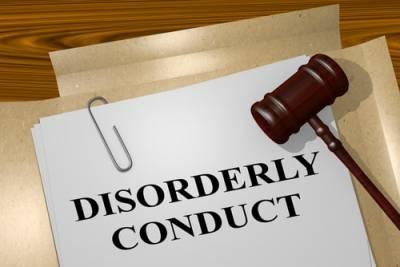Explaining Disorderly Conduct Classifications with Examples
 Summer is here: the days are long, the nights are short, and the temperature is perfect for relaxation. This time of year, time seems to slow down, enabling society just to enjoy the ride of life. However, this slowdown leads to a particular element of restlessness, leading individuals to find their means to fill the time, often leads to loitering, peace disturbances, and other minor crimes. Unfortunately, many of these behaviors are rolled together into a single criminal charge of disorderly conduct. There are several classifications of disorderly conduct, including infractions, misdemeanors, and felonies. The legal definition of the charge is vague, encompassing many actions that many do not realize are in direct violation of the law.
Summer is here: the days are long, the nights are short, and the temperature is perfect for relaxation. This time of year, time seems to slow down, enabling society just to enjoy the ride of life. However, this slowdown leads to a particular element of restlessness, leading individuals to find their means to fill the time, often leads to loitering, peace disturbances, and other minor crimes. Unfortunately, many of these behaviors are rolled together into a single criminal charge of disorderly conduct. There are several classifications of disorderly conduct, including infractions, misdemeanors, and felonies. The legal definition of the charge is vague, encompassing many actions that many do not realize are in direct violation of the law.
Infractions and Misdemeanors
Disorderly conduct is an all encompassing charge for a broad range of behavior. The simple form of the definition states that laws are broken when personal behavior alarms or disturbs another person or provokes a break in the peace. This description leaves many citizens unaware that their choices may cause legal trouble. You do not have to cause harm or destroy property, only behaving in a manner that may annoy someone else falls under this catch-all charge. Examples of behaviors that may result in a lower level infraction or misdemeanor include:
- Yelling in a neighborhood,
- Causing a scene in a retail shop because the employee is uncooperative,
- Using harassment as a debt collector to collect said debt, or
- Filing a false report to a public safety agency.
Felonies
Felonies are a bit easier to identify as law-breaking, however, the charge applies to a large group of behaviors. If the error in judgment reaches a conviction in a court of law as a felony, the resulting punishment may include imprisonment of up to five years and fines between $3,000 and $10,000. Felony disorderly conduct includes:
- Falsely reporting a fire or fire alarm,
- Reporting a bomb falsely,
- Requesting emergency response without need, or
- Claiming a child is being neglected or abused when they are not.
Avoid a Criminal Record
Although the majority of disorderly conduct charges are misdemeanors, penalties still include time in prison as well as hefty fines and a criminal record. Much of the penalties may be avoidable depending on your case. By hiring an experienced attorney, your charges may be reduced or dismissed, depending on the specific details of your case. If you are interested in discussing your situation with a Maywood, IL criminal defense attorney who will aggressively fight for you to keep your rights, contact Stringini & Garvey, P.C. today by calling 630-834-9595. We utilize over 65 years of experience to defend our clients in Maywood, Glendale Heights, Lombard, Bloomingdale, and all surrounding Chicagoland areas.
Sources:
http://www.ilga.gov/legislation/ilcs/ilcs4.asp?ActID=1876&ChapterID=53&SeqStart=73600000&SeqEnd=74600000
http://www.ilga.gov/legislation/ilcs/fulltext.asp?DocName=072000050K26-7



